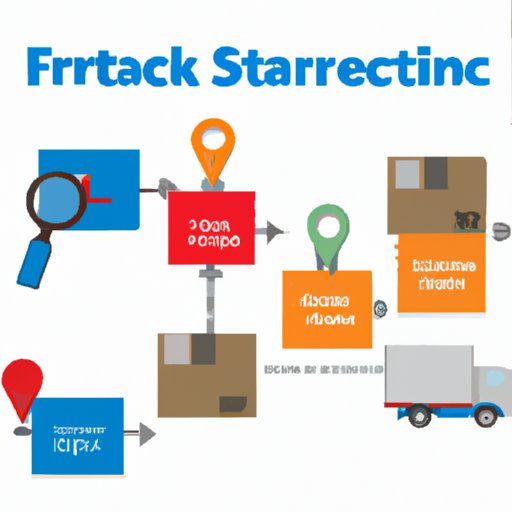Introduction
A freight carrier business involves transporting goods and materials from one point to another for clients. Freight carriers typically use trucks, vans, or trailers to transport their cargo and may specialize in certain types of materials such as hazardous materials or perishable items. Starting a freight carrier business can be an exciting and profitable venture, but it requires careful planning and research.

Outline the Steps to Starting a Freight Carrier Business
Starting a freight carrier business requires a number of steps, including researching industry and regulatory requirements, developing a business plan, securing financing, choosing an appropriate location, purchasing the necessary equipment, and marketing your business. By following these steps, you can ensure that your business is off to a successful start.
Research the Industry and Regulatory Requirements
The first step in starting a freight carrier business is to research the industry and regulatory requirements. Identify industry standards and regulations that apply to freight carriers, such as safety requirements and hours of service. Additionally, understand insurance and licensing requirements, such as any permits you may need to operate your business. Lastly, research potential customers and competitors so that you can better identify how to position your business for success.
Develop a Business Plan
Once you have researched the industry and regulatory requirements, the next step is to develop a business plan. Outline the goals and objectives of your business, such as increasing revenue by a certain amount each year. Describe the services you will offer and estimate start-up costs. Additionally, create financial projections to help you understand the cost of running your business and identify areas where you can save money.
Secure Financing
Once you have developed a business plan, it’s time to secure financing. Explore loan options from banks and other lenders. Consider alternative financing sources, such as government grants or private investors. Make sure to do your research and find the best option for your needs.
Choose an Appropriate Location
When starting a freight carrier business, it’s important to choose an appropriate location. Evaluate local economic conditions, such as the population and job market. Consider zoning requirements, such as if you are allowed to operate a business in the area. Additionally, find a facility that meets your needs, such as one that has enough space for your vehicles and storage areas.
Purchase the Necessary Equipment
Once you have secured financing and chosen a location, it’s time to purchase the necessary equipment. Research the best trucks for your business, such as those with fuel efficiency and low emissions. Invest in safety features and technology, such as cameras and GPS systems. Additionally, consider maintenance and repair costs, as well as the cost of fuel.
Market Your Business
The final step in starting a freight carrier business is to market your services. Develop a marketing strategy that includes digital tools, such as a website and social media accounts. Reach out to potential customers, such as manufacturers, retailers, and wholesalers. Additionally, consider using traditional methods, such as print ads or direct mail.
Conclusion
Starting a freight carrier business requires research, planning, and dedication. By following the steps outlined in this guide, you can ensure that your business is off to a successful start. From researching industry regulations to marketing your services, taking the time to complete these steps can help you build a successful and profitable business.
(Note: Is this article not meeting your expectations? Do you have knowledge or insights to share? Unlock new opportunities and expand your reach by joining our authors team. Click Registration to join us and share your expertise with our readers.)
